- Contact: +86-18518778855
- E-mail: [email protected]

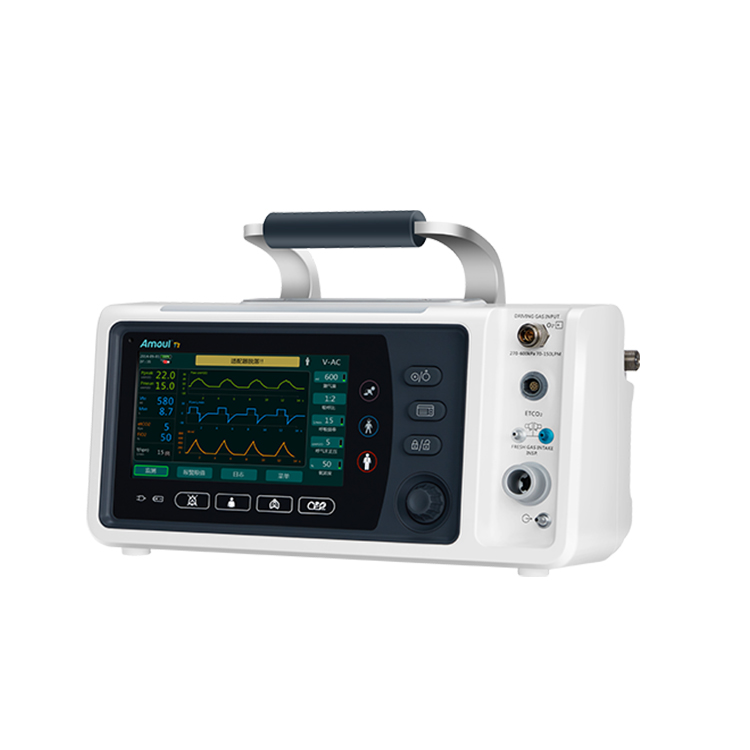

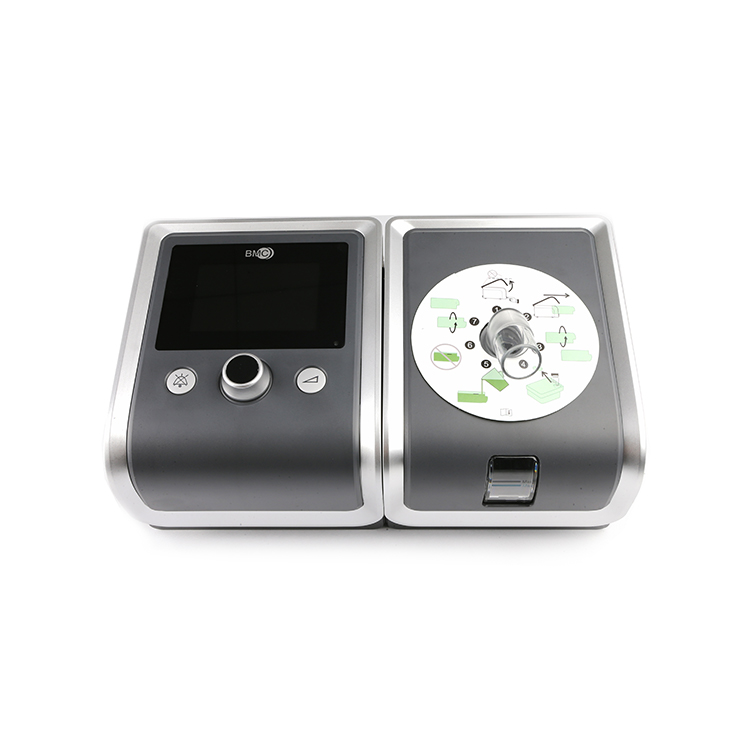
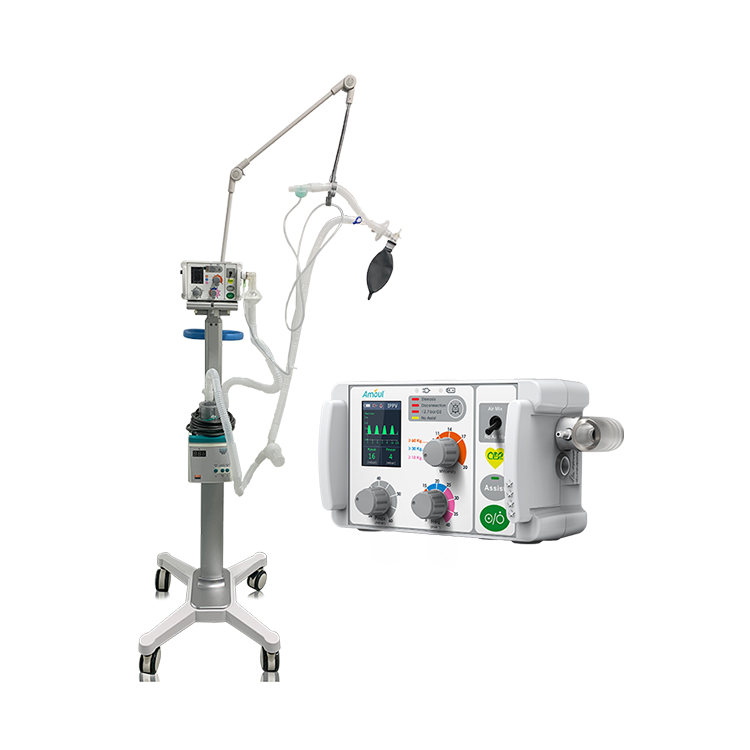
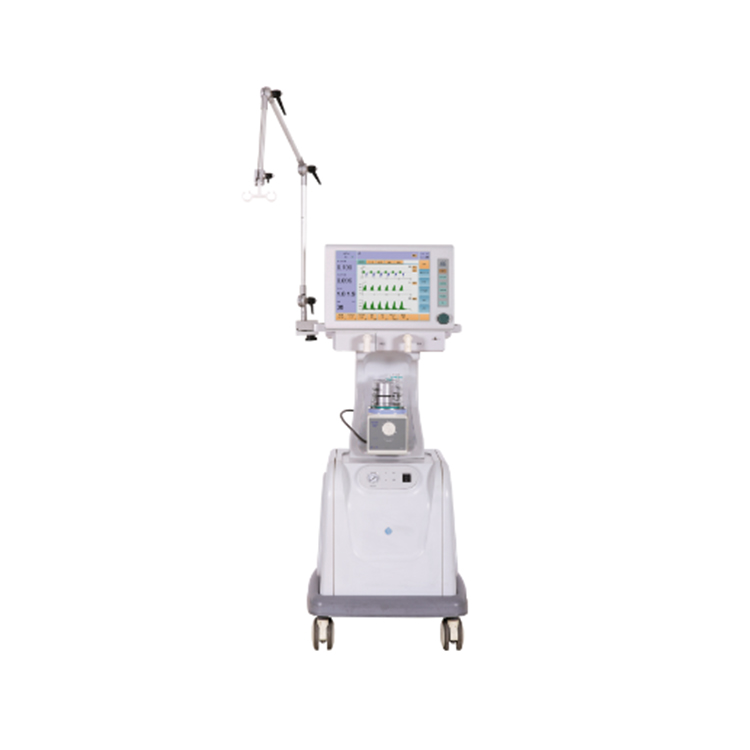
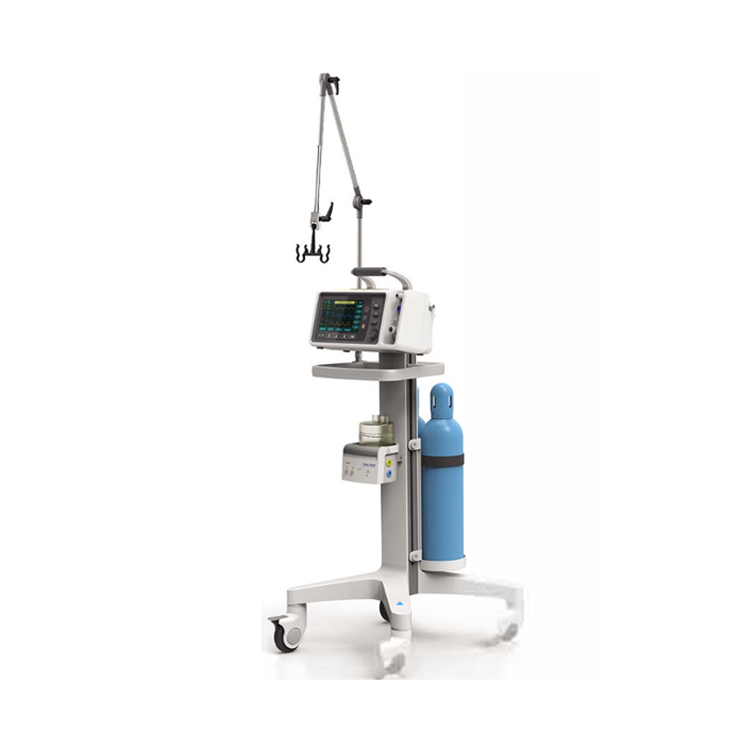
Ventilator: C’est un appareil qui peut remplacer, contrôler ou modifier la respiration physiologique normale, augmenter le volume de ventilation pulmonaire, améliorer la fonction respiratoire, réduire la consommation de travail respiratoire et économiser la capacité de réserve cardiaque des humains. Camshield peut fournir aux clients deux solutions pertinentes pour les ventilateurs : ventilateur non invasif : le ventilateur est connecté aux patients via le masque, et ventilateur invasif : le ventilateur est connecté aux patients par intubation endotrachéale.
| Ventilateur non invasif | jeventilation invasive | |
| Differences between ventilators | Low volume and simple panel | High volume and complex panel |
| High flow, low pressure and good leakage compensation | Low flow, high pressure and poor leakage compensation | |
| Simple setting of monitoring and alarming | Perfect setting of monitoring and alarming | |
| Connection mode for ventilators | Connection through the oral-nasal mask, nasal mask or full-face mask | Connection through orotracheal, nasotracheal intubation or tracheotomy |
| Mechanical ventilation mode | Less, BiPAP(Bi-level, I/E), CPAP, etc. | Plus, VCV, PCV, SIMV, PSV,etc. |
| Suitable patients | Patients with mild-to-moderate respiratory failure | Patients with severe respiratory failure |
| Scope of application | Intensive care unit (ICU), general ward, family | ICU |
| Advantages | Preserve the normal physiological function of the patients (talking, expectoration, eating, etc.) | Good sealing performance of pipeline |
| Less pain and easy tolerance | Good man-machine cooperation | |
| Avoid the complications of invasive mechanical ventilation | Has air-oxygen mixture, and can accurately set the inhaled oxygen concentration | |
| Avoid or reduce the use of sedatives | Easy guaranteed airway management | |
| Relatively low medical expenses | Perfect setting of ventilation parameters and alarming, which can ensure accurate ventilation and timely find problems | |
| Disadvantages | Poor airtightness of airway and easy leakage | Easy to cause facial injury |
| Simple setting of monitoring and alarming | Complex pipeline connection and bulky | |
| Mostly has no air-oxygen mixture, and can not accurately set the inhaled oxygen concentration | Can not preserve the normal physiological function of the patients | |
| Not conducive to the drainage of airway secretions | Poor patients’ tolerance and need to use sedatives or muscle relaxants frequently | |
| Insufficient gas heating and humidification | Common mechanical ventilation related complications (injury of the oral and nasal mucosa and the vocal cord, ventilator-associated pneumonia, ventilator-associated lung injury, etc.) | |
| Easy to cause abdominal distension | Ventilator dependence is prone in some patients | |
| High medical expenses |
Produits sélectionnés (pour plus de modèles de produits, veuillez nous contacter):
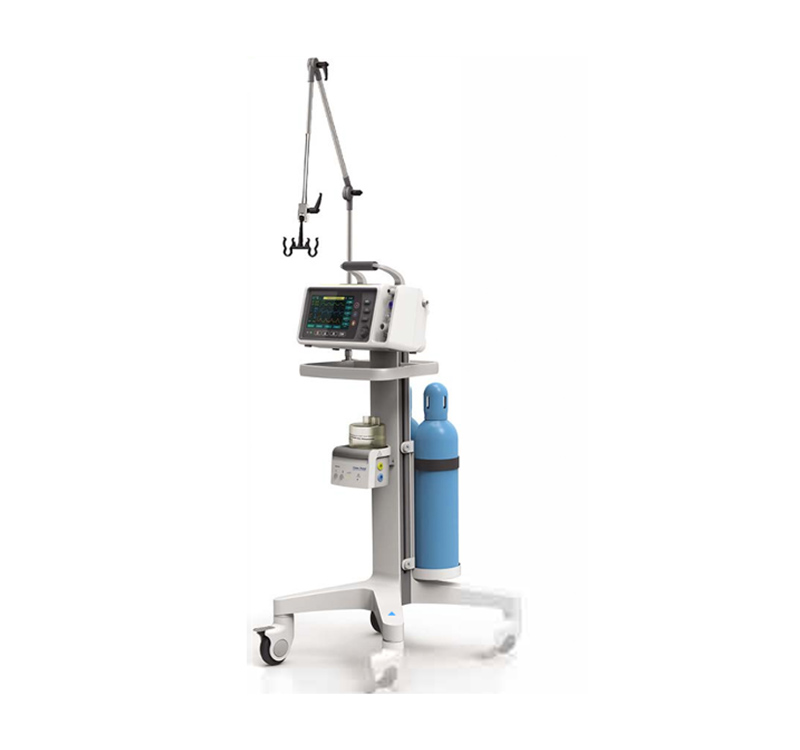
| Ventilateur combiné non invasif invasif & | Spécification: |
| • Elegant and portable design
• 7″color touch screen with screen lock • Real-time display of 4 waveforms and 3 loops • Tidal Volume range:20-2500ml, I:E ratio1:59 to 99:1 • 17 ventilation modes: V-AC,V-SIMV, PRVC,PRVC+,P-AC P-SIMV,PCV,CPAP,CPAP+,BiPPV,BiPPV+,APRV,APRV+ CPR,RSA,HFNC • CPR mode according to AHA guideline • 2 trigger way: pressure and flow • 02 concentration adjustment from 40% to 100% (21% to 100% option) • Internal PEEP valve • Audible and visual alarm for multi-parameters • Optional Mainstream EtC02 with Respironics technology • Rechargeable Lion battery with 10 hours standby time, and 5 hours working time |
|
| Certificats : CE,MAJEUR | |
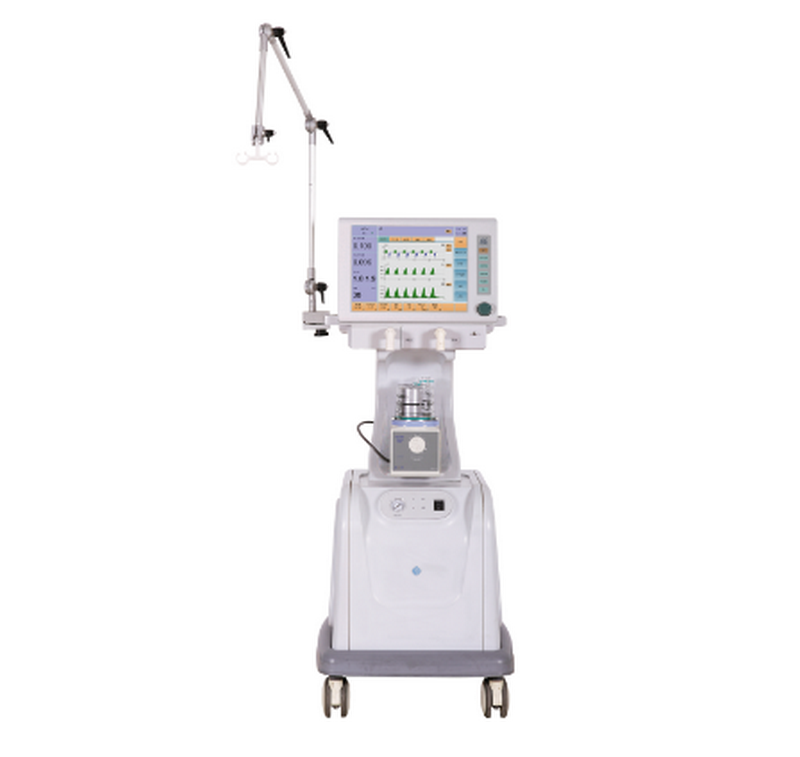
| Ventilateur de soins intensifs | Spécification: |
|
|
Mode de ventilation
PRVC, APRV, DUOLEVEL, V-SIMV, P-SIMV, IPPV, P-A/C, V-A/C, PCV, PSV, PONT/CPAP, SIGH, MANUEL Paramètre du ventilateur Volume courant (Vt) :0~ 2000 mL Fréquence (Fréq): 1min~100min Concentration en oxygène: 21%~100% l : E 4 : 1~1 : 8 PEP: 0cmH2O~ 40 cmH2O Sensibilité de déclenchement par pression (Ptr): -20 cmHzO ~ 20 cmHzO (Basé sur PEP) Sensibilité de déclenchement de débit (Ftr) :0,5L./min ~ 30 L /min Contrôle de pression (PC) 5 cmH2O ~ 80 cmH2O Support de pression (PS) :0 cmH2O ~ 80 cmH2O SOIR 0 (éteint) 1/100 ~ 5/100 A ventilation pnée :OFF,5s~60s Limite de pression :20 cmHzO ~ 100 cmH₂O Paramètre de surveillance Fréquence (Fréq): 0/ min~ 100 / min Volume courant (Vt) 0mL~2500mL MF:0L /min ~ 99 L ./min Pression des voies aériennes: 0 cmHzO ~ 100 cmH2O Test de conformité pulmonaire dynamique :1 mL/cmHzO ~ 1000 mL /cmHzO Concentration en oxygène: 15%~100% Taille d’emballage Composants principaux : L 560 * L 560 * H 605 mm G.W. :40KG, N.W.:17 KG Compresseur d’air : L 670* lar. 700 * H 1160 mm G.W. : 84 KG, N.W. : 46.2 KG |
| Certificats : CE, ISO | |
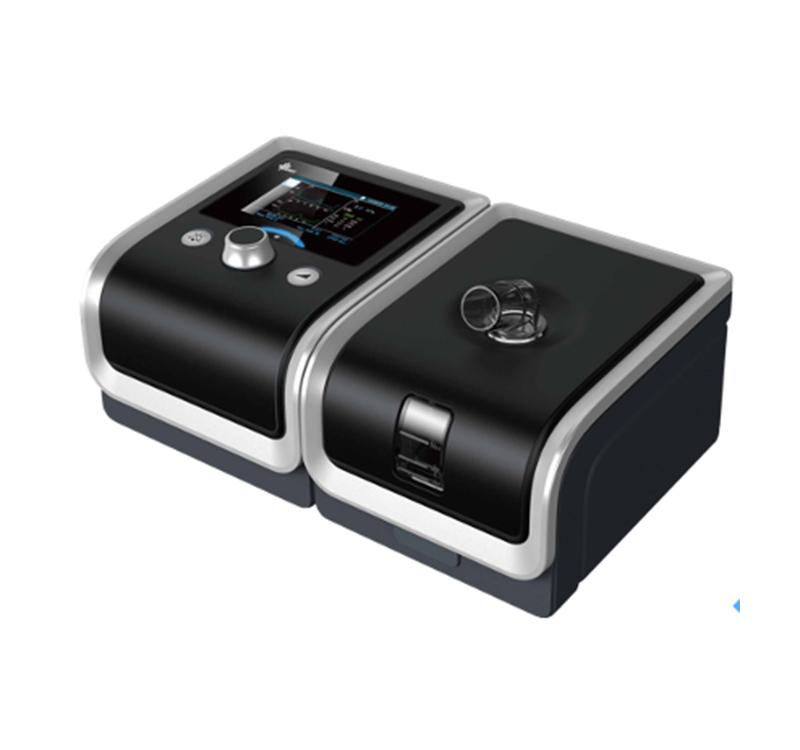
| boum | Spécification: |
|
Informations générales
Dimensions : 170 mm × 180 mm × 118 mm/290 mm × 180 mm × 134 mm (avec l’humidificateur) Poids : 1.5 kg314577762.5 kg (avec l’humidificateur) Capacité en eau : 350 ml au niveau d’eau recommandé Rampe : le temps de rampe varie de 0 t à 60 minutes Humidificateur:Paramètres de l’humidificateur : désactivé, 1 to 5 (95°F à 167°F / 35°C à 75°C) Sortie de l’humidificateur : Pas moins de 10 mg H2O/L Plage SpO2 : 0 to 100% Plage de fréquence du pouls : 40 to 240 bPM Niveau de pression acoustique:< 30 dB, lorsque l’appareil fonctionne à la pression de 10 hPa Stockage : la carte SD peut enregistrer les données du patient et les informations sur les défauts Consommation électrique CA : 100 – 240 V CA, 50/60 Hz, 2 A max. Paramètres clés Cible Vt : On/ Off 150~1500 mL Reslex : Patient, désactivé, 1~3 I Sens. : 1~8 E Sens.: 1~8 Taux de résolution : 3~40 BPM Ti : 0.3-3.0s Temps de montée : 1~4 |
|
| Certificats : CE, ISO | |
Ventilation non invasive (VNI) :Convient aux patients souffrant d’insuffisance respiratoire légère à modérée ; propose une ventilation non invasive (VNI) aux patients souffrant d’insuffisance respiratoire à l’aide d’un appareil à pression positive à deux niveaux (BiPAP).
Ventilation invasive :Convient aux patients souffrant d’insuffisance respiratoire sévère ou de syndrome de détresse respiratoire aiguë (SDRA) et à ceux incapables de maintenir une respiration spontanée ; facilite le traitement des patients gravement malades avec une voie aérienne artificielle.
Ventilateur invasif non invasif/ :Destiné à fournir une assistance ventilatoire flexible aux patients présentant une insuffisance respiratoire aiguë modérée à sévère/.
Adresse: Beijing, Haidian District, Xizhimen, Beida Street, Jia NO 43, Jinyun Building, Block B, Room 305-02
Numéro de contact: +86-18518778855
Contact: Dr. Chenlong Gao
E-mail: [email protected]
Mobile:+86-18518778855